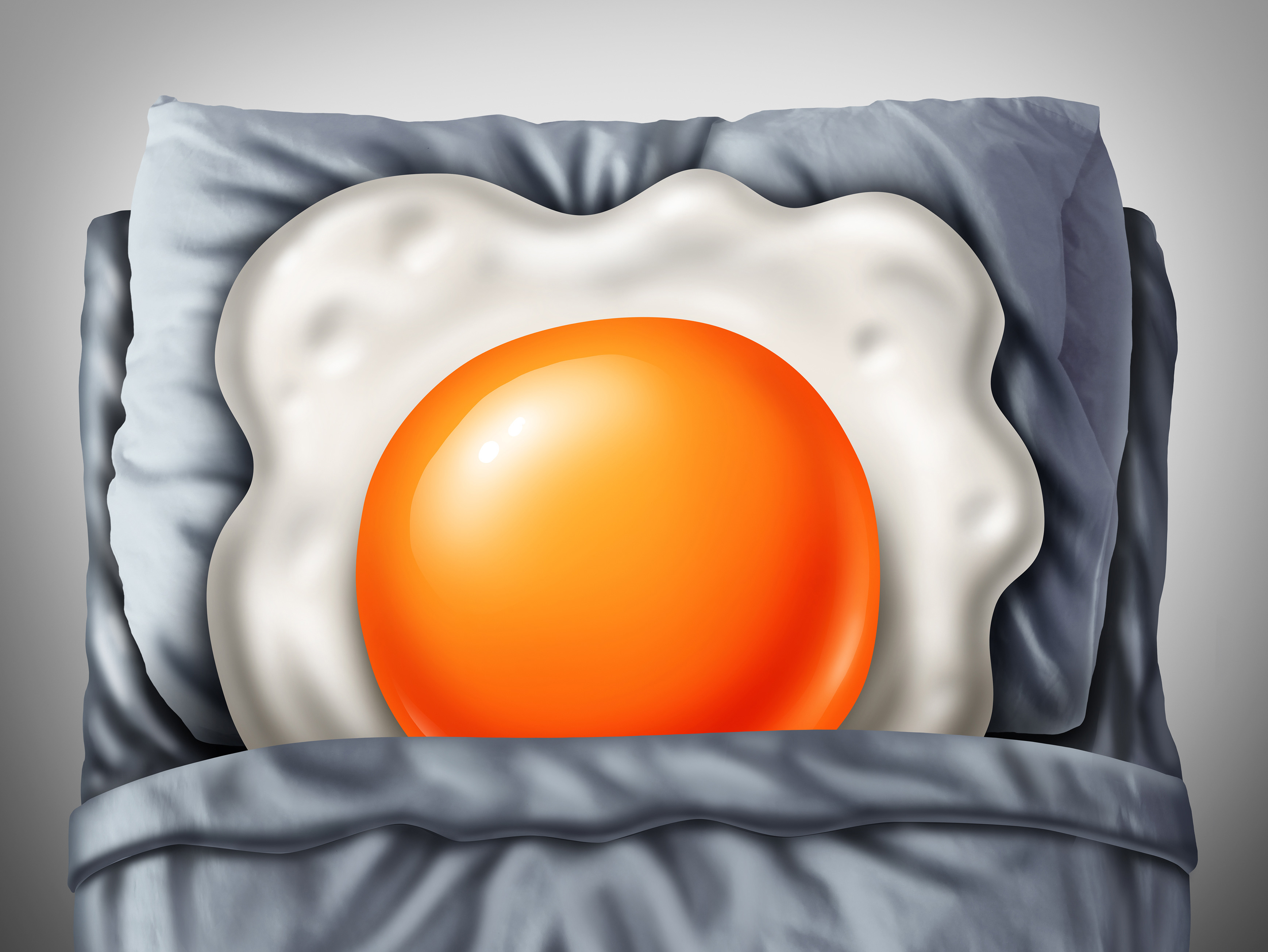Get Easy Health Digest™ in your inbox and don’t miss a thing when you subscribe today. Plus, get the free bonus report, Mother Nature’s Tips, Tricks and Remedies for Cholesterol, Blood Pressure & Blood Sugar as my way of saying welcome to the community!
Time to put this cholesterol lie to bed

For years, doctors have been telling their patients to give up eggs because they contained cholesterol and were believed to contribute to coronary artery disease. If I could I would find my cheerleader megaphone, buried somewhere in my basement closet, climb to the highest hill in my neighborhood and yell at the top of my lungs: “Stop picking on the eggs!!! Eggs are safe! Eat your eggs!”
But my neighbors may think I’ve gone off the deep end and have me arrested. Instead I’ll put some science in front of as many people as the newsletter can reach…
A new study from the University of Eastern Finland shows that a relatively high intake of dietary cholesterol, or eating one egg every day, is not associated with an elevated risk of incident coronary heart disease.
Now, you may have read some other articles from me that made it clear that eggs are safer than you’d previously been told, but this study goes even further in proving it…
First of all eggs contain dietary cholesterol. In the majority of the population dietary cholesterol affects serum cholesterol (the cholesterol in your blood) very little. But in a much smaller segment of the population, in people who carry a specific protein known as apolipoprotein E type 4 allele — which significantly impacts cholesterol metabolism — the effect of dietary cholesterol on serum cholesterol levels is greater, putting these people at higher risk. And this is where the Finnish study gets really interesting…
In Finland, the number of people who carry the APOE4 phenotype is exceptionally high — because it is a hereditary variant. Approximately one third of Finland’s population falls into this group of people who could see an elevated risk for coronary artery disease from consuming dietary cholesterol — like we find in eggs — so it makes for an ideal study group.
Can you guess what they found?
In the highest control group, the study participants had an average daily dietary cholesterol intake of 520 mg and they consumed an average of one egg per day.
The study found that a high intake of dietary cholesterol was not associated with the risk of incident coronary heart disease — not in the entire study population nor in those at potentially the highest risk—the people with the APOE4 phenotype.
Moreover, the consumption of eggs, which are a significant source of dietary cholesterol, was not associated with the risk of incident coronary heart disease. The study did not establish a link between dietary cholesterol or eating eggs with thickening of the common carotid artery walls, either.
So please, if you’ve been avoiding eggs because of fears about coronary artery disease, I hope you can put your concerns to rest and embrace all that good eggs have to offer including:
- Muscle development: A protein-rich breakfast that includes eggs can also egg on your muscular development — more so than getting your protein at supper time. After the age of 40 muscle deterioration increases and holding on to your muscles can slow the effects of aging.
- Avoiding diabetes: Research at the University of Colorado School of Medicine in Aurora show that overweight women who skip breakfast make themselves particularly vulnerable to acute incidents of insulin resistance. When that kind of resistance occurs often enough, or persists, it can lead to type 2 diabetes. Eggs are an eggs-cellent breakfast choice.
- Weight maintenance: A study at the University of Connecticut shows that eating protein-rich eggs for breakfast can help you feel fuller during the day and eat less at lunch. In this research, men who had eggs for breakfast took in about 18 percent fewer calories during the day than men who ate cereal or other high carbohydrate foods first thing in the morning.












